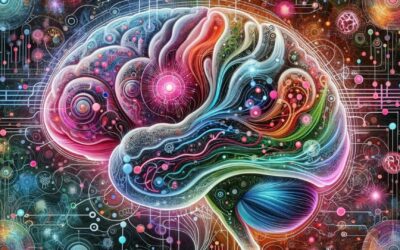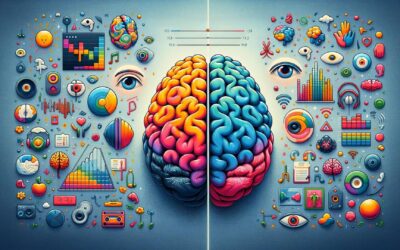- The Intricate Link Between Stress and the Brain
- Understanding Stress and the Brain
- Real-Life Examples of Stress Impacting Learning
- Strategies to Mitigate Stress’s Impact on Learning
- Taking Action: Enhancing Your Learning in a Stressful World
- Why Should You Care?
- Key Takeaways:
- Keywords and Definitions:
- Frequently Asked Questions:
- Myth Buster:
- Let’s Talk:
Delve into the intricate relationship between stress, brain function, and learning. Discover how stress affects cognitive abilities and explore practical strategies for mitigating its impact to enhance learning and mental well-being.
The Intricate Link Between Stress and the Brain
You might have felt it before – that moment when you’re under pressure and suddenly, it’s as if your brain hits a roadblock. Whether it’s during an exam, a high-stakes meeting, or even while trying to learn something new, stress can play a significant role in how your brain functions. But how exactly does stress affect your brain and learning capabilities?
Understanding Stress and the Brain
Stress triggers a flood of hormones, including cortisol and adrenaline, preparing your body for a ‘fight or flight’ response. While this can be beneficial in short bursts, chronic stress can alter brain function in several ways:
- Memory and Concentration: Chronic stress can impair the hippocampus, the part of the brain responsible for memory and learning. This can lead to difficulties in forming new memories and concentrating on tasks.
- Cognitive Flexibility: Under stress, the prefrontal cortex, which manages high-level cognitive functions like problem-solving and decision-making, can become less efficient, reducing your cognitive flexibility and creative problem-solving abilities.
- Emotional Response: The amygdala, your emotional center, becomes more active during stress. This heightened emotional response can skew perception and reasoning, impacting learning and decision-making.
Real-Life Examples of Stress Impacting Learning
- Students During Exams: Ever wondered why some students perform poorly in exams despite being well-prepared? The high stress of the exam situation can impair their cognitive functions, affecting recall and understanding.
- Professionals in High-Stress Jobs: Professionals like doctors or firefighters often have to learn and apply new information rapidly. Chronic stress can make this more challenging, impacting job performance and critical decision-making.
- Everyday Learning: Even day-to-day learning, like picking up a new hobby or language, can be hindered by stress, making the process slower and more frustrating.
Strategies to Mitigate Stress’s Impact on Learning
- Mindfulness and Relaxation Techniques: Practices like meditation and deep breathing can reduce stress levels, improving memory and concentration.
- Regular Exercise: Physical activity is known to reduce stress hormones and increase endorphins, enhancing brain function.
- Adequate Sleep: Quality sleep is crucial for cognitive functions like memory consolidation. Ensuring enough sleep can help mitigate the negative effects of stress.
- Balanced Diet: A diet rich in antioxidants and omega-3 fatty acids can protect the brain from the harmful effects of stress.
- Time Management and Organization: By managing time and reducing procrastination, you can lower stress levels and improve your capacity to learn and retain information.
Taking Action: Enhancing Your Learning in a Stressful World
Stress is an inevitable part of life, but it doesn’t have to control your learning and cognitive abilities. By understanding how stress affects your brain, and implementing strategies to manage it, you can significantly improve your learning capabilities and overall mental well-being. Start today by incorporating stress-reduction techniques into your routine. Whether it’s through mindfulness, exercise, or better time management, taking steps to reduce stress will not only enhance your learning abilities but also enrich your overall quality of life. Remember, a healthier brain leads to more effective learning, so take charge of your stress and unlock your true cognitive potential.
Why Should You Care?
Understanding how stress affects brain function and learning is crucial for anyone who faces stressful situations – which is virtually everyone. This knowledge is not just academically interesting; it’s a vital part of managing your mental health, enhancing your learning capabilities, and improving overall life quality. By understanding the impact of stress, you can adopt strategies to mitigate its negative effects, leading to better cognitive function, improved decision-making, and a more fulfilling life.
Key Takeaways:
- Stress Hormones Impact Cognitive Functions: Chronic stress can disrupt brain function by affecting areas responsible for memory, concentration, and decision-making.
- Memory and Learning Impairment: Prolonged stress can harm the hippocampus, impacting memory formation and learning.
- Reduced Cognitive Flexibility: Stress can make the prefrontal cortex less efficient, hindering problem-solving and creative thinking.
- Heightened Emotional Response: Stress increases activity in the amygdala, affecting emotional balance and reasoning.
- Stress Management Techniques Are Crucial: Techniques like mindfulness, exercise, and adequate sleep can significantly mitigate the impact of stress on the brain.
Keywords and Definitions:
- Chronic Stress: Prolonged and constant feeling of stress that can negatively affect health.
- Cortisol: A hormone released in response to stress, known for its role in the body’s stress reaction.
- Hippocampus: A part of the brain involved in forming new memories and learning.
- Prefrontal Cortex: The brain’s area responsible for complex cognitive behavior, decision-making, and moderating social behavior.
- Amygdala: A section of the brain that plays a key role in processing emotions.
- Cognitive Flexibility: The mental ability to switch between thinking about two different concepts or to think about multiple concepts simultaneously.
- Mindfulness: A practice involving conscious awareness and focus on the present moment, often used as a stress-reduction technique.
- Endorphins: Neurotransmitters in the brain that act as natural painkillers and mood elevators.
- Memory Consolidation: The process of stabilizing a memory trace after learning.
- Antioxidants: Molecules that fight free radicals, potentially reducing stress-related damage in the body.
Frequently Asked Questions:
How does acute stress differ from chronic stress in terms of impact on the brain?
Acute stress is a short-term response with immediate effects, often beneficial in critical situations. Chronic stress, however, is prolonged and can lead to detrimental changes in brain function, including impaired memory and learning abilities.
Can stress ever have positive effects on brain function and learning?
In small doses, stress can be beneficial, enhancing alertness and performance. This is often referred to as ‘eustress’, the positive stress that keeps us vital and excited about life.
Myth Buster:
Myth: Only negative events cause stress.
Reality: Stress can be triggered by positive events as well, like starting a new job or moving to a new city. It’s the change and uncertainty, not necessarily the negativity, that triggers stress.
Myth: Stress is always bad for learning and memory.
Reality: While chronic stress is harmful, moderate, short-lived stress can actually enhance alertness and performance, potentially improving learning and memory.
Let’s Talk:
- Do you think modern lifestyles contribute to higher levels of chronic stress? How so?
- In your experience, what are the most effective strategies for managing stress, especially in a learning environment?
- How can schools and workplaces better support individuals in managing stress?
Feel free to share your thoughts and experiences in the comments below. Let’s explore together how we can better understand and manage stress for improved learning and overall well-being.










0 Comments